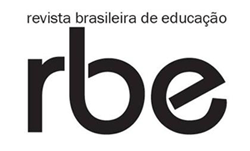The creation of indigenous public schools in 1997 by means of the Programme for the Implantation of Indigenous Schools in the State of Minas Gerais (PIEI-MG) was an important event for all the indigenous groups involved. Among the Xakriabá people, the process of schooling began twenty years earlier, and was intensified by the creation of the indigenous public schools. This accelerated expansion generated a very specific school context. In this article, explore the different perspectives of analysis of the schooling process proposed by the anthropology of education. Two examples of the characteristics of the xakriabá schools the attendance of non official students, the "indolent", and the possibility of failing the best students focus our attention on those aspects of daily life that are not generally perceived as cultural elements (such as the verbal and non verbal interactional styles and the relations of authority). These aspects are not immediately visible and are not, therefore, taken as constitutive of the cultural specificity of the xakriabá school.
indigenous education; school culture; anthropology of education
